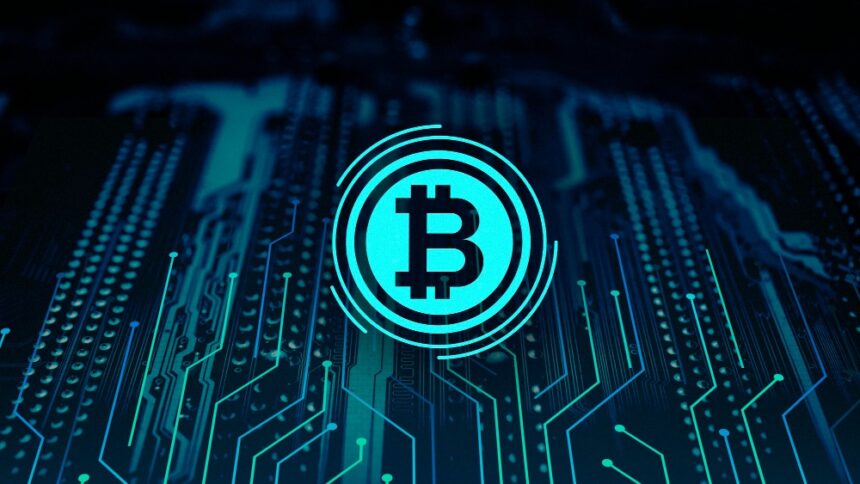In recent years, the term “blockchain” has become increasingly synonymous with financial technology and digital innovation. What began as the underlying technology for cryptocurrencies like Bitcoin has now evolved into a revolutionary force, transforming the way we think about and execute money transfers.
The importance of blockchain in money transfer cannot be overstated, as it brings unprecedented levels of security, transparency, efficiency, and accessibility to the global financial system.
Understanding Blockchain Technology
To grasp the importance of blockchain in money transfers, it is essential first to understand what blockchain technology entails. At its core, blockchain is a decentralized digital ledger that records transactions across a network of computers.
Unlike traditional ledgers maintained by a central authority, a blockchain ledger is distributed and immutable, meaning that once a transaction is recorded, it cannot be altered or deleted.
- Advertisement -
Blockchain operates through a series of blocks, each containing a list of transactions. These blocks are linked together in chronological order, forming a chain. The decentralized nature of the blockchain ensures that no single entity has control over the entire network, which significantly enhances security and trust.
Security: A Primary Concern in Money Transfers
One of the most significant advantages of blockchain technology in money transfers is the heightened level of security it provides. In traditional financial systems, transactions often pass through several intermediaries, each introducing potential points of failure or vulnerability.
Cyberattacks, fraud, and human error are constant threats, and these risks are amplified when dealing with international transfers involving multiple currencies and jurisdictions.
Blockchain addresses these concerns by employing advanced cryptographic techniques to secure transactions. Each transaction is encrypted and linked to the previous one, creating a secure and tamper-proof record.
The decentralized nature of the blockchain also means that even if one part of the network is compromised, the entire system remains secure. This level of security is particularly crucial in money transfers, where the stakes are high and trust is paramount.
Transparency and Trust
In addition to security, transparency is another critical factor that makes blockchain technology invaluable in money transfers. In traditional financial systems, the lack of transparency can lead to mistrust and inefficiencies. For example, when transferring money across borders, it can be challenging to track the transaction’s progress, leading to delays and uncertainty.
Blockchain, however, offers complete transparency by providing a public ledger that is accessible to all participants in the network. Every transaction is recorded and visible, allowing users to trace the flow of funds in real-time.
This transparency not only builds trust among participants but also reduces the likelihood of fraud and corruption.
Furthermore, smart contracts—self-executing contracts with the terms of the agreement directly written into code—can be implemented on the blockchain to automate and enforce the terms of a transaction. This ensures that all parties involved in the transfer adhere to the agreed-upon conditions, further enhancing trust and efficiency.
Efficiency and Cost-Effectiveness
Another significant advantage of blockchain technology in money transfers is its ability to streamline processes and reduce costs. Traditional money transfer systems, especially international ones, often involve multiple intermediaries, such as banks, clearinghouses, and payment processors.
Each intermediary charges a fee for its services, driving up the overall cost of the transfer. Moreover, the involvement of multiple parties can lead to delays, with transfers taking several days to complete.
Blockchain eliminates the need for intermediaries by enabling peer-to-peer transactions directly between parties. This not only reduces the cost of transfers but also significantly speeds up the process. For example, while traditional international transfers can take several days, blockchain-based transfers can be completed in a matter of minutes or even seconds.
This speed and cost-effectiveness make blockchain an attractive option for individuals and businesses alike, especially in an increasingly globalized economy.
Financial Inclusion and Accessibility
Blockchain technology also holds the potential to revolutionize money transfers by promoting financial inclusion. In many parts of the world, particularly in developing countries, a significant portion of the population remains unbanked or underbanked, meaning they have limited or no access to traditional financial services.
This lack of access can make it challenging for individuals to participate in the global economy, including sending and receiving money across borders.
Blockchain offers a solution by providing a decentralized and accessible financial infrastructure that does not require a traditional bank account. All that is needed to participate in the blockchain network is an internet connection and a digital wallet.
This accessibility empowers individuals in underserved regions to engage in financial activities that were previously out of reach, such as sending remittances to family members or receiving payments for goods and services.
Moreover, blockchain-based money transfer platforms often have lower fees than traditional remittance services, making it more affordable for individuals in developing countries to send and receive money. This has the potential to uplift entire communities by providing them with the tools they need to participate in the global economy.
Challenges and Considerations
While the importance of blockchain in money transfers is evident, it is also essential to consider the challenges and limitations associated with the technology. One of the primary concerns is scalability. As the number of transactions on the blockchain increases, the network can become congested, leading to slower processing times and higher fees.
This issue is particularly relevant for public blockchains, where transactions are processed by a decentralized network of nodes.
Another challenge is regulatory uncertainty. The regulatory landscape for blockchain and cryptocurrencies is still evolving, and different countries have different approaches to how they regulate and oversee blockchain-based financial activities. This can create legal and compliance challenges for businesses and individuals looking to use blockchain for money transfers.
Additionally, while blockchain technology offers enhanced security, it is not entirely immune to risks. For example, the security of a blockchain network depends on the strength of the underlying cryptographic algorithms and the network’s decentralization.
In some cases, poorly designed smart contracts or vulnerabilities in the blockchain code can lead to security breaches or financial losses.
Despite these challenges, the potential benefits of blockchain in money transfers far outweigh the drawbacks. As the technology continues to evolve and mature, it is likely that many of these challenges will be addressed, paving the way for even broader adoption of blockchain-based financial services.
Blockchain technology is revolutionizing the way money transfers are conducted by offering unparalleled levels of security, transparency, efficiency, and accessibility. By eliminating the need for intermediaries, reducing costs, and providing a decentralized financial infrastructure, blockchain is transforming the global financial system and promoting financial inclusion.
While challenges and regulatory uncertainties remain, the potential of blockchain in money transfers is undeniable, and its importance will only continue to grow as the technology evolves.
As we move further into the digital age, blockchain is poised to play a central role in shaping the future of money transfers, making them faster, more secure, and more accessible to people around the world.
Whether for individuals sending remittances to family members or businesses conducting cross-border transactions, blockchain technology offers a promising and innovative solution to the complexities of the modern financial landscape.

